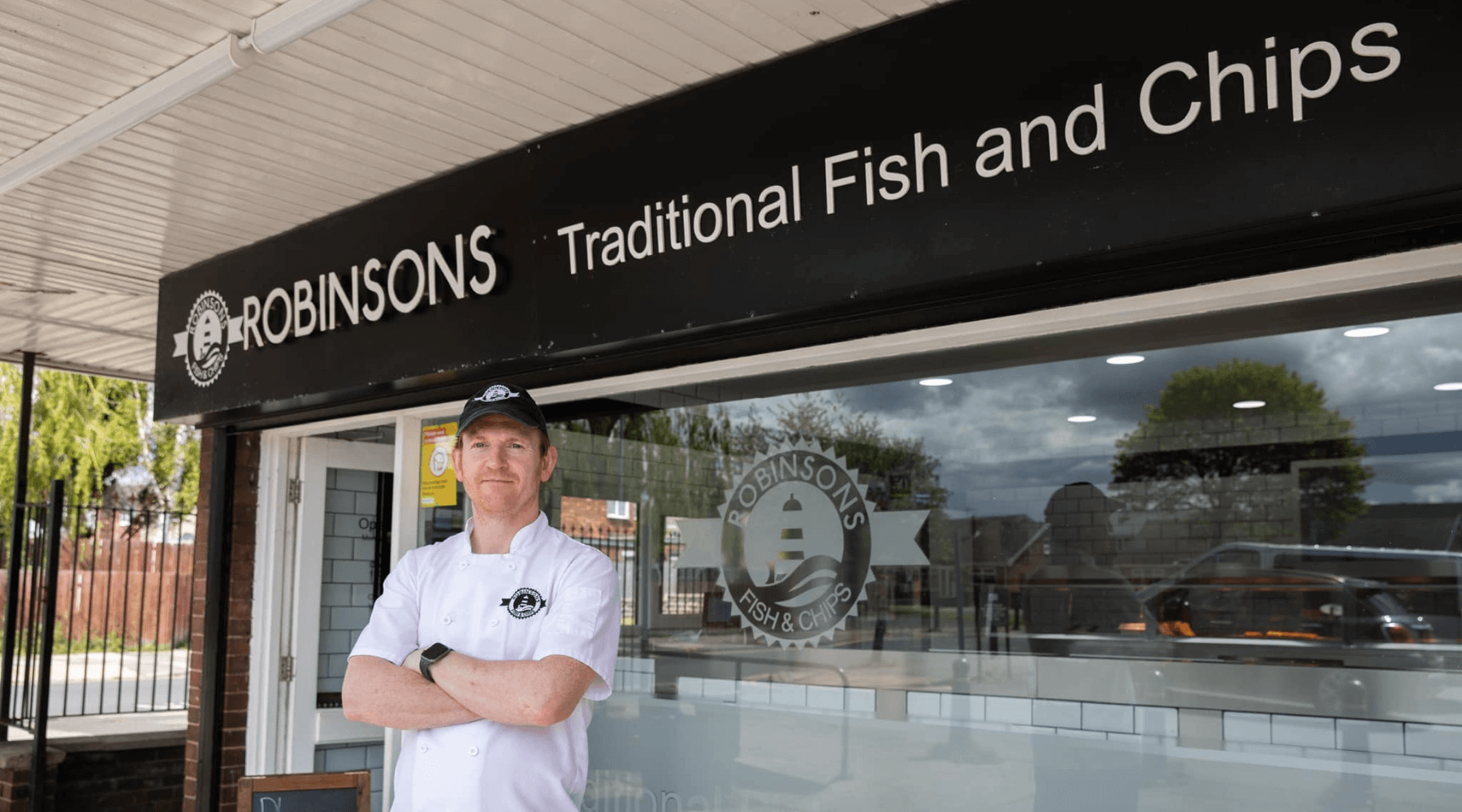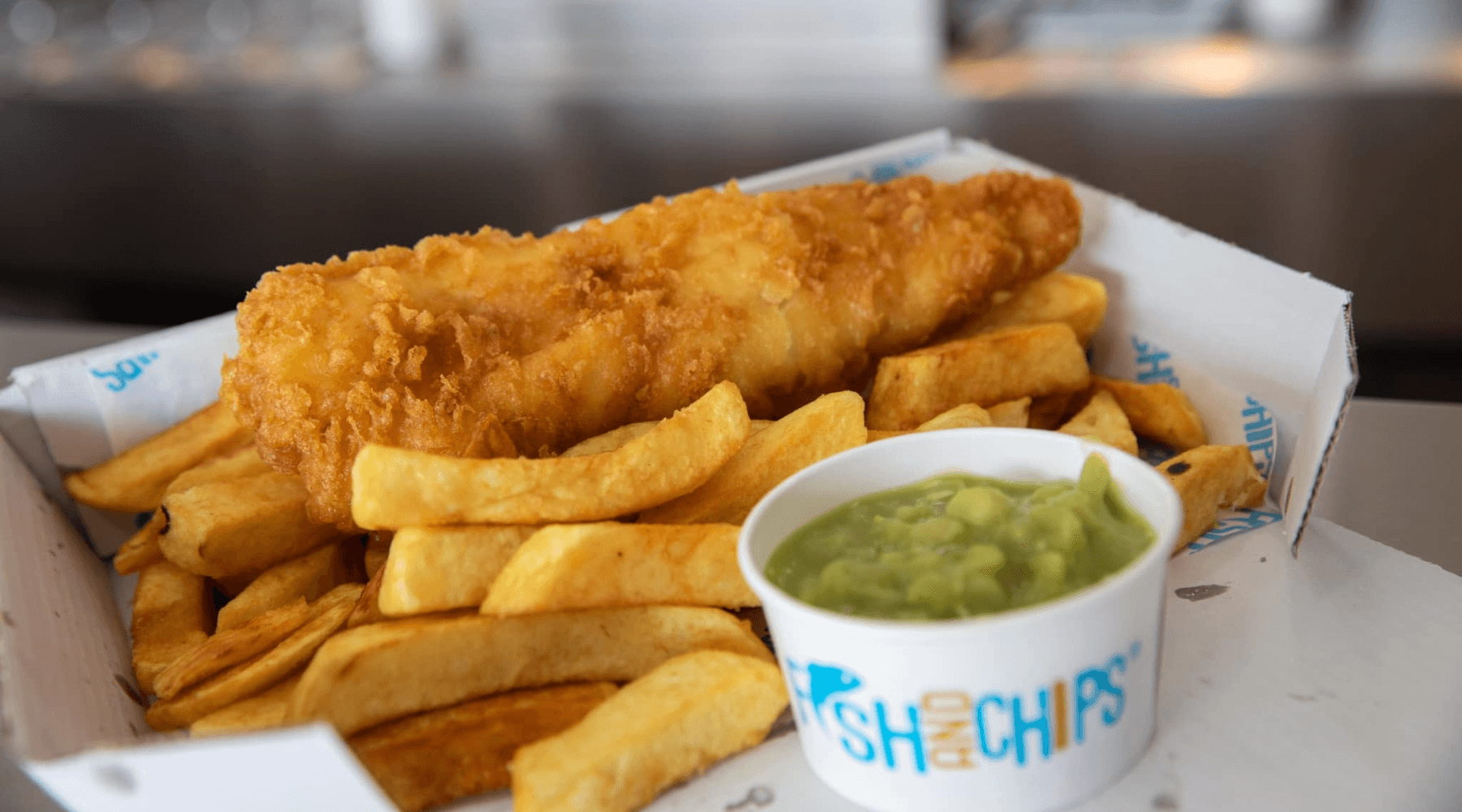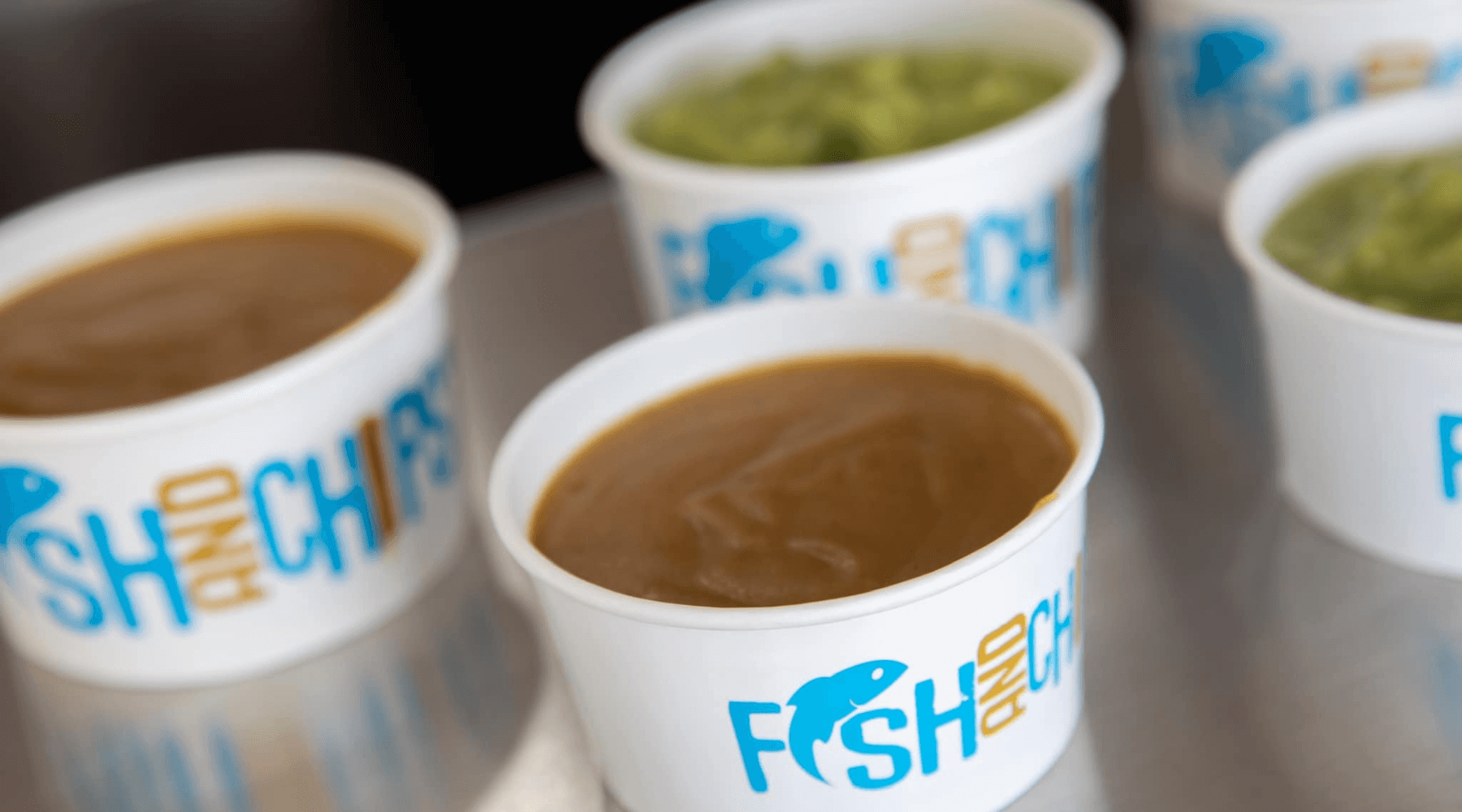Robinsons Fish & Chips: Tradition, Quality and Community at Heart
Posted by Emily on 22nd Nov 2024 Reading Time:
For fourth-generation frier Martin Robinson, fish and chips is more than just a business - it's a family legacy that can be traced back to a popular takeaway in Whitby in the 1940s.
"My family started at Royal Fisheries in Whitby," says Martin. "They sold it to the Fusco family and then moved over to Teesside in the '60s because Whitby was very seasonal back then. It's only in the last 20 years it's become an all-year-round place."Learn more about the Fusco family's inspiring journey here.

Martin grew up in the trade but, in his twenties, wanted a life beyond the frying range. He explored the restaurant industry, managed a nightclub for nearly a decade, and even spent four years offshore before returning to fish and chips. "It's been nine years now since I set up my own shops, and fish and chips is a good business to be in. Yes, it's tough right now, but any business is hard at times."
Today, Martin operates two fish and chip shops in Stockton-on-Tees, County Durham - Robinsons Traditional Fish & Chips and Family Robinsons. Both focus on traditional fish and chips, with Martin preferring to concentrate on what the family name is known for. "We're a bit old-fashioned," he admits. "We don't do deliveries, no pizzas or kebabs — just proper fish and chips. It's basic, but it works."
For Martin, the secret to great fish and chips is simple: quality ingredients, customer service and consistency. "Fish and chips is basic food — it's not about being fancy," he says. "If you do it properly, you are just using a handful of natural ingredients, and you can create something great from that, something to be proud of."
Passionate about serving great quality fish and chips, Martin sources Icelandic frozen-at-sea cod and fresh haddock, and opts for pre-prepared chips over chipping and peeling potatoes, which he says saves time and maintains quality. "It's about ease, but also consistency. The cost of labour and setting up a potato room can be significant, and with a good supplier, you know you're getting the same quality every time."
Martin also emphasises the importance of resisting shortcuts, especially when times get tough. "Everything's skyrocketing in price, but you can't start cutting corners because you're only ever cutting back on your quality. You might save a few pounds in the short term, but in the long term, it can cost you your business. It's very hard to build up a business, it's very easy to lose it."
Situated in residential areas, Martin's shops are closely involved in their local communities, acting as hubs for people coming together. "People come in, bump into neighbours, and catch up while waiting for their order. It's like a pub atmosphere in some ways. There's a real sense of connection."
Martin actively gives back to his community, sponsoring local football, rugby and cricket teams, and donating vouchers for fundraising raffles. "If you can help, you should help," he says. "I'd rather support the local kids than let the taxman take it," he adds. "Plus, we're not the only shop in the area. People have other choices, but things like this keep them coming back to us."
Giving back is about more than just generosity for Martin, it's about recognising the people who have helped his business grow. For example, when Martin's shop won a pallet of batter mix in a competition run by Ceres, he used the savings to provide 60 portions of fish and chips for a local pensioners' group. This group had placed one of the shop's very first orders when it opened and continues to order once or twice a year to this day.

"When we told the organiser we wanted to give her the order for free, she didn't understand why," says Martin. "To her, it was just one or two orders a year she makes, but for us, being a new shop at the time, word spread so quickly from that order, and we started seeing people from that group coming in as regular customers once or twice a week. It became a stepping stone for growing the business, so it was our way of saying thank you."
For the past decade, Martin has relied on Ceres products, including the Natural Batter Mix, Pre-Dust, Gravy Mix, Curry Sauce and Mushy Peas Seasoning, to maintain his high standards. "I first noticed Ceres when I read about them in industry magazines after Simpsons won Fish & Chip Shop of the Year in 2016. They used Ceres batter, so I tried it and liked what I saw. I've tried pretty much everything Ceres has brought out since and have stuck with them all because they deliver fantastic results, and the service is excellent," he says. Learn more about the Simpsons Fish & Chips here.
The Natural Batter Mix, in particular, has become a staple. "It's got a nice, light colour and forms a thin, crisp coating. It's literally just three ingredients - two grades of wheat flour and a unique raising agent formula - so it's simple and natural. That's what fish and chips should be."
The Pre-Dust Number One, which Martin switched to from ordinary rice flour, has helped improve his food significantly. "It's super fine, so it creates a light dry coating and blends in with the fish, so you don't even know it's there. Plus, it's pre-seasoned, so it adds flavour as well."

The Mushy Peas Seasoning has also brought benefits, ensuring consistency and quality. Previously, seasoning peas was a bit of a guessing game, with the risk of variations depending on who was preparing them. Martin explains: "Now we know the exact amount of seasoning we need for the amount of peas we are putting on that day. Before it was three scoops of this and two scoops of that. If you got them the wrong way around, it wasn't very nice!"
Martin appreciates the additional support Ceres provides, from podcasts - which Martin says are great for killing time during the morning prep - to direct communication with Ceres MD Stelios Theocharous.
"The product is important, of course, but I've always said with Ceres it goes beyond the product. Stelios is constantly at the end of the phone for advice or to bounce ideas off," Martin says. "He's helped tweak our batter and other aspects of the process. It's great to know you've got that kind of support."
While Martin orders his batter from wholesaler Henry Colbeck, he will log in to the Ceres online shop for everything else. "I usually buy a month's stock at a time, so I know I have everything I need, but it's great if you realise you are on your last bag of something because you can place an order and get it the next day. And I've never been let down by that either."

Reflecting on what it takes to run a successful business today, Martin emphasises three elements: cleanliness, service, and product. "Those are the basics," he states. "If you get those elements right, you've got a chance of winning."
And, he adds, never losing sight of your customers - especially when times are hard. Martin adds: "We're certainly not getting the margins that we used to get, and the profit that we're making is nowhere near where it should be, but I think it's more important when things are tough to double down on trying to help. If we're having a hard time, everybody's having a hard time, so if you can, do your bit and help. It's good for business because it raises your profile, but it also creates a lot of goodwill which customers will remember you for."

